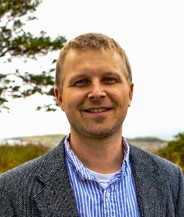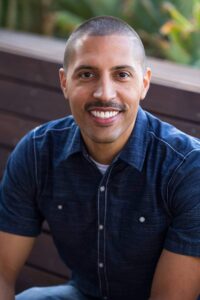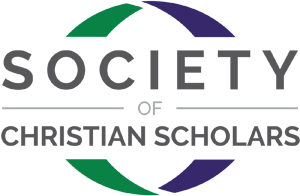How Do the Powerless Think?
An Op-Ed by Peter Yang, Visiting Professor (University of Malaysia)
Throughout human history, there has often been a mismatch where people with the ability to think have no power. In some contexts, thinking is not a right, it’s a privilege. In 1979, the famous Czech opposition figure Vaclav Havel, in The Power of the Powerless, asserted that the powerless can also think under communism. He believed that everyone should live in truth, which would breed the possibility of change. I think Havel’s view is helpful for Christians as well.
In many Muslim countries, other religious groups often have little political, economic or cultural influence. In secular societies, the value of Christianity or of religion in general is minimized. And in most authoritarian countries, Christianity is suppressed as disloyalty to national identity.
What do these external circumstances really mean for Christian scholars, especially those living under authoritarian regimes?
Lacking political power doesn’t mean we lose the possibility of thinking. Actually, being without power or rights gives us more room and opportunity to think, or at least stimulates us to think about profound questions. Having power can make us lose humility and become focused on ideology. This often results in us not understanding the problem clearly.
Throughout much of human history, thinking often belonged to those who did not hold power. In the pre-Constantinian era, for example, Pilate had real political power, but meaningful thinking about the world and the mysteries of the universe was exhibited by Jesus and the disciples. In the first few centuries of the church, the Roman emperors had secular power, but the early Christian fathers and apologists held the real power of historical interpretation.
Christian scholars working in secular universities are only a tiny part of the modern academic system, but we need to know that we have a mission. We often have no visible power, but at the same time we have real power for thinking, given by God.

A Glimpse into Chinese Christian Scholarship
by Dr. Sam, Asia Regional Representative
On 21–24 August 2023, a group of Chinese Christian scholars traveled to Fuller Theological Seminary in California to attend the Chinese Public Forum––an event initiated and planned by a group of Chinese Christian scholars. Dr. Sam, our Society’s Asia Regional Representative, assisted in preparations for and participated in this conference. Most of the scholars came from secular universities in mainland China, though some were members of the Chinese diaspora who serve in European and American universities.
Although Christianity in China is growing rapidly, it remains a marginalized group, alienated from mainstream society, culture, and politics..At the conference, these Christian scholars discussed the relationship between public theology and Chinese society, anti-intellectualism in Chinese Christianity, and a number of other specific theological topics pertinent to Chinese culture. Although these issues are not well addressed in China’s secular academic system, the efforts by Christian scholars at this forum represent the painstaking, theoretical explorations being carried out by Christian scholars in China.
Upcoming Webinar


Being Human in an Age of AI: A Christian Perspective by Michael Burdett – Thursday, 21 December 2023 at 1400 UTC
Many academics in the STEM and humanities fields assert that we live in a transhumanist world where human beings can evolve beyond their physical and mental limitations by means of technology and science. These claims raise the specter of a diminished view of human beings, renewing earlier historical conversations about the relationship between technology and what it means to be human.
On Thursday, 21 December 2023 at 1400 UTC, Dr Michael Burdett, Associate Professor in the Department of Theology and Religious Studies at the University of Nottingham (UK), will address some of these concerns about what it means to be human in an age of AI. He maintains that Christian ethical responses to AI ought to take the form of two complementary approaches.
The first approach considers proximate ethical concerns related to AI. This approach most often considers more immediate personal and socio-political repercussions and the kind of impact that is occurring now or could occur in the very near future. Proximate ethics of this type include impacts on fairness, accountability, sustainability and transparency.
The second approach concerns ultimate ethics and focuses on the longer-term impact and implications of AI. Examples of this type might include issues of uniqueness, deep societal transformation and inequality, changes to personal character, and even the role AI might play in God’s ultimate economy of creation and grace.
Dr Burdett contends that the Christian church should incorporate both approaches to AI and that focusing too myopically on one at the expense of the other diminishes the church’s witness in our technological society.
In preparation for the webinar, read Dr Burdett’s June 2023 article, ‘Proximate and Ultimate Concerns in Christian Ethical Responses to Artificial Intelligence‘, published in Studies in Christian Ethics.
Be sure to register today for this important conversation!
Note: Be sure to check the Webinars Page for third-party webinars that are often added on short notice and for updated presenters and topics that may be helpful in equipping you to bring the gospel to bear in your university context.
Upcoming Opportunities
Society’s Bi-Monthly Reading Group
Join the Society’s bi-monthly reading group on Friday, 1 December 2023 at 1400 UTC. We will begin discussing the article ‘A Case for Ethical Cooperation between Evangelical Christians and Humanitarian Islam’ in the Society’s Library. Be sure to check www.worldtimebuddy.com for your local time. We look forward to having you join the conversation!
Society EBSCO Survey
The Society of Christian Scholars strives to offer EBSCO databases, which are subscription databases, that will enhance the research and teaching of its members. In order to do so, we review the current usage data of the EBSCO databases currently offered and combine that data with the results of this survey to determine what will be offered next calendar year.
If you haven’t taken the annual EBSCO, please take a few minutes to complete this survey.
Annual Global Scholars Grant Now Open!
The Annual Global Scholars Grant (2024) is now open. Applications can be submitted until 1 February 2024. The purpose of these grants is to help Society members become better equipped to fulfill their calling in academia. Full members of the Society of Christian Scholars are invited to apply.
- November 1, 2023: First day to submit applications
- February 1, 2024: Deadline for grant submissions
- February 1 to April 1, 2024: Grant Evaluation Committee determines grant recipients
- June 1, 2024: Grant recipients announced
- July 31, 2024: Funds awarded
- Grant recipients will be asked to submit regular reports as indicated in the terms of the specific grant.
- Several grants between $500 USD and $2,000 USD will be awarded.
- Applicants who have received this grant last year (2023) are not allowed to apply this year.
2023 Christian Scholars Foundation Legacy Grant Announcement
Global Scholars, in partnership with InterVarsity’s Emerging Scholars Network, is delighted to announce that we have awarded the 2023 Christian Scholars Foundation Legacy Grant to Dr. George D. Montañez. Dr. Montañez, a faculty member in computer science at Harvey Mudd College, is producing an impressive set of new research in machine learning and is training the next generation of machine learning scholars and professionals. Titled “Understanding Bias in Artificial Learning,” his project will advance knowledge in the crucial area of reducing harmful impacts of bias in machine learning and artificial intelligence systems. The project continues a strong track record of work on artificial intelligence and machine learning, with an emphasis on mentoring and including undergraduate scholars in the process of producing new knowledge. The Christian Scholars Foundation Legacy Grant contributes funding to support research during a sabbatical period, which will contribute to a larger project.
One of the key questions for the fields of artificial intelligence and machine learning is whether people can use the tools of the field in a way that decreases harms from bias, rather than increasing them. Dr. Montañez is contributing knowledge to help solve that problem and others in these growing fields. Through the model he has developed for his AMISTAD lab, which engages undergraduate researchers in the publishing of new scientific knowledge, Dr. Montañez contributes to the field in these ways, among others:
- Publishes new research that answers necessary technical questions about bias in machine learning and other key problems
- Engages undergraduate students in research work and equips them for research careers
- Mentors a diverse group of students in a way that builds the field’s capacity to understand both technical knowledge and ethical impacts in machine learning.


Dr. Montañez has won a number of awards, including a Best Paper Award at ICAART 2020, a Claremont Colleges 2020 Diversity Mentor Award, and a Harvey Mudd 2021 Outstanding Faculty Member Award, which is “awarded to a faculty member who has gone above and beyond their job role to serve as a mentor for students and/or student organizations and embody Mudd values, such as collaboration and care for the campus community.”
The Christian Scholars Foundation Legacy Grant committee is delighted to support this project. Please stay tuned for further updates on Dr. Montañez’s work.
Disclaimer: The views and opinions expressed in the Addenda are those of the authors and do not necessarily reflect the views or positions of the Society of Christian Scholars.
